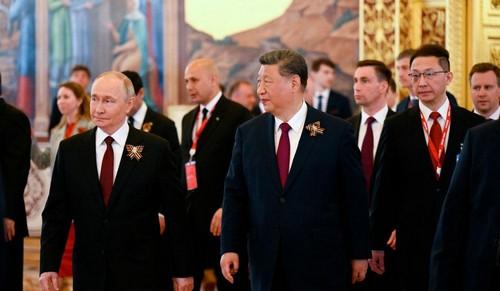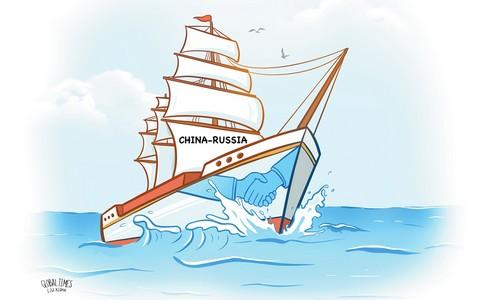
China, Russia should stay ahead of the curve
Andrey Kortunov
The recent World War II Victory Day celebration in Moscow attracted 27 heads of state as well as numerous prominent politicians and opinion-makers from all over the world, including Europe, Asia, Africa and Latin America. Nevertheless, Chinese President Xi Jinping was a very special guest at this event and his presence inevitably garnered a lion’s share of public attention both in Russia and abroad.
Many things have changed since Xi’s last trip to Moscow. The China-Russia political and economic ties have matured and become deeper and more diverse than two years ago. In 2024, bilateral trade reached a record $244.8 billion. The two sides completed a number of large-scale projects in transportation infrastructure development and made significant progress in linking their respective payment systems, facilitating visas, easing Russia’s agricultural deliveries to China and promoting China’s car exports to Russia. This positive trend has also manifested itself in student and academic exchanges, bilateral research projects, cross-cultural events and trans-border cooperation.

However, the world around Russia and China was changing in an even more profound way. Unfortunately, in most cases, these changes were not changes for the better. The global economy moved further away from free trade. The efficiency of universal multilateral institutions, including WTO, WHO and even the United Nations (UN), has been seriously compromised, calling into question the future of global governance and multilateralism at large.
On May 8, the day before Chinese military units marched together with Russian forces on Moscow’s Red Square, President Xi Jinping and President Vladimir Putin discussed all these and other developments in a closed format, followed by an expanded meeting involving senior governmental officials from both sides. Xi’s May visit to Moscow resulted in the signing of a number of important bilateral documents, including the joint statement on global strategic stability, which could serve as an appropriate template for future discussions on this issue in a broader format of the five permanent members of the UN Security Council. The two sides also concluded agreements on the promotion and mutual protection of investments, cooperation in the digital economy, public health, space research, higher education, media, and youth policy, among others. Western observers of China-Russia relations, who had been waiting for sensational developments, were undoubtedly disappointed: There was nothing in the signed documents that indicated any radical shifts or sudden changes in priorities, let alone any new visible wrinkles in the bilateral relationship.
When President Xi visited Moscow two years ago, the Biden administration was trying hard to convince the Chinese leadership to exercise more pressure on Russia in order to force the Kremlin to accept a strategic defeat in its confrontation with the West. Today, the Trump administration is trying to drive a wedge between Moscow and Beijing in exactly the opposite way. By offering the Kremlin seemingly lucrative, albeit quite vague, opportunities for US-Russia cooperation after the conflict in Ukraine is over, Washington intends to bring Russia to the “right side of history.” However, the odds are that the Trump administration will be no more successful in breaking the China-Russia partnership than its predecessor was two years ago.
But let us imagine for a second that the US could have succeeded in playing the role of a malicious spoiler in the China-Russia relationship. Could such a development contribute in any way to international security or even to the long-term strategic interests of the US itself? Not very likely – no nation can possibly benefit from more tensions and less stability in the international system. The fact is that today, China-Russia relations stand out as one of the very few remaining cornerstones of international stability in a profoundly unstable and highly volatile world. If one removes the cornerstone, the whole structure would start crumbling like a house of cards. The consequences of this dangerous process would undoubtedly be detrimental to everybody, including the US.
According to TASS, Putin is now scheduled to come to Beijing in late August and early September for the anniversary of the victory in the Chinese People’s War of Resistance Against Japanese Aggression. This is less than four months from now, and the preparation for this visit should have started. Given the incredibly fast and often completely unpredictable developments in the world, the two leaders will have no shortage of topics to talk about. The challenge for the leaders of the two nations is not only to react promptly to the evolving global agenda but also to actively shape that agenda. Russia and China should stay ahead of the curve, not behind it.
The writer is the academic director of the Russian International Affairs Council
